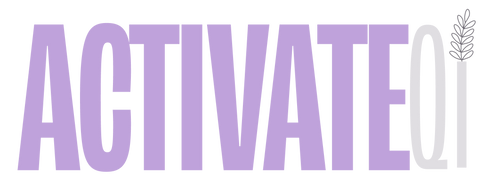Herbal Traditional Chinese Medicine (TCM) and Western medicine differ significantly in their approaches to health, diagnosis, and treatment.
These differences are rooted in contrasting philosophies, historical contexts, and methodologies, which affect how each system views the body and healing. Here’s an expanded perspective on why TCM should not be held to the same confines as Western medicine and synthetic supplements:
1. Philosophical and Holistic Foundations
TCM: One of the core principles of TCM is the belief in a balanced relationship between the body and nature. TCM sees the body as an integrated whole, where health is a dynamic balance of the body’s energies (Qi), Yin and Yang, and the Five Elements (Wood, Fire, Earth, Metal, and Water). Disease is viewed as an imbalance or disruption in these forces. Treatment aims to restore harmony and flow in the body, targeting the root causes of illness rather than merely symptoms.
Western Medicine: Western medicine is rooted in a more mechanistic and reductionist view. It often focuses on the physical body and its components—organs, tissues, cells, and molecules. It views health as the absence of disease, and treatments often target specific pathogens, symptoms, or malfunctioning organs. This approach tends to isolate issues and treat them individually, rather than seeing how they interact as part of a larger system.
2. Approach to Diagnosis and Treatment
TCM Diagnosis: TCM practitioners rely on methods like pulse diagnosis, tongue observation, and thorough interviews to assess the state of a person’s health. It’s more about understanding the patient’s constitution, lifestyle, emotional health, and environmental factors to craft an individualized treatment plan.
Western Medicine Diagnosis: In Western medicine, diagnosis often involves lab tests, imaging, and clinical evaluation. The focus is on identifying specific conditions based on symptoms and biological markers, and treatment usually involves medications, surgeries, or therapies based on the diagnosis.
3. Herbal Remedies vs. Synthetic Supplements
Herbal Remedies: In TCM, herbs are seen as part of a broader therapeutic system. They are typically used in combination to work synergistically, not just as isolated compounds. Each herb is believed to have specific properties, such as warming or cooling, tonifying or dispersing, and they are used to restore balance in the body. Herbs in TCM are chosen based on their energetics, how they interact with other herbs, and their ability to address both symptoms and root causes of disease.
Western Medicine and Synthetic Supplements: In contrast, synthetic supplements in Western medicine are often single-compound formulations designed to address a particular deficiency or problem. These supplements are typically created through chemical synthesis, and while they may have beneficial effects, they don’t usually take into account the person’s individual constitution or the interconnectedness of various body systems. The reliance on isolated active compounds (like vitamins, minerals, or pharmaceuticals) contrasts sharply with TCM’s holistic view.
4. Concept of Treatment Goals
TCM: Treatment is focused on restoring balance and promoting the body’s natural healing abilities. It’s a gradual, ongoing process aimed at long-term wellness, which may prevent disease rather than just treat it. Healing can be seen as a journey, with both the mind and body involved in the process.
Western Medicine: In Western medicine, treatments are often more interventionist and focused on alleviating immediate symptoms or curing diseases. While there is an increasing trend toward preventative medicine, Western approaches often focus more on acute and chronic diseases and their direct treatment.
5. Energy and Vital Force
TCM: Qi (vital energy) is central to TCM philosophy. Health is seen as the smooth and unimpeded flow of Qi, and illness is viewed as a result of Qi stagnation, depletion, or imbalance. TCM treatments (including herbs, acupuncture, and dietary adjustments) are meant to restore the proper flow of Qi throughout the body.
Western Medicine: Western medicine does not incorporate the concept of Qi in its understanding of health. Instead, it focuses on anatomical and physiological processes. Energy in Western medicine is typically understood in terms of metabolic pathways and biochemical reactions, but it does not include a concept of vital energy or life force as TCM does.
6. Individualization and Customization
TCM: TCM places a high emphasis on personalized treatment. Every person’s unique condition, constitution, lifestyle, and environment are taken into account when prescribing herbs, acupuncture, or other treatments. Two individuals with the same disease might receive different treatments based on their overall health and balance.
Western Medicine: While there is a growing interest in personalized medicine, particularly with genetic testing and precision medicine, Western medicine often uses standardized treatments based on general principles, clinical trials, and evidence-based guidelines. It is more common for treatments to be designed for the average patient, with less focus on deep customization.
7. Safety, Side Effects, and Long-Term Use
TCM Herbal Medicine: One of the strengths of TCM herbal medicine is its focus on balance and gradual healing. When prescribed by an experienced practitioner, herbal remedies are generally considered safe, with minimal side effects. However, the combination of herbs in TCM aims to mitigate potential toxicity, as opposed to single-ingredient supplements.
Synthetic Supplements and Western Medicine: Synthetic supplements and pharmaceuticals can have more pronounced side effects, especially when used improperly or without sufficient monitoring. There’s a greater risk of adverse reactions from isolated compounds in synthetic supplements compared to the more balanced approach in TCM.
8. Long-Term Sustainability and Symptom Management
TCM: TCM often encourages lifestyle changes that support long-term health, such as adjustments to diet, exercise, emotional health, and daily routines. It is based on the idea that health maintenance should be a continuous process, not just a reaction to illness.
Western Medicine: While Western medicine does have preventative care (such as vaccines, screenings, and health education), it is often more focused on managing or eliminating diseases and symptoms. In some cases, chronic conditions may be managed with medications for a lifetime, rather than addressing the root causes or promoting a holistic approach to health.
Why TCM Should Not Be Held to the Same Confines
Given that TCM operates on principles that are fundamentally different from Western medicine, its practices and remedies should not be evaluated or compared solely through the lens of Western science or synthetic treatments. TCM is a complex, holistic system that treats the individual as a whole, rather than focusing on isolated symptoms or organs. Evaluating TCM according to Western standards might not fully capture its benefits, as the two systems are based on vastly different worldviews. Rather than trying to fit TCM into the confines of Western medicine, it should be appreciated and understood in its own right, where balance, energy, and interconnectedness are central to health and healing.
This is precisely why I find discussions around Traditional Chinese Medicine (TCM) particularly compelling. The challenge lies in attempting to measure TCM against the standards of Western medicine, despite the fact that TCM is rooted in fundamentally different principles and philosophies. While Western medicine is typically grounded in empirical, scientific methods and a mechanistic view of the body, TCM is based on holistic concepts that emphasize balance, energy flow, and the interconnectedness of mind, body, and environment. The contrasting frameworks of each system—how they conceptualize health, disease, and healing—underscore the distinctiveness of both approaches. This makes it essential to appreciate and respect the unique methodologies, rather than trying to directly compare them or impose one set of standards on the other.
Understanding TCM on its own terms allows us to honor a tradition that has supported wellness for thousands of years and continues to offer profound insight into what it truly means to be healthy.




